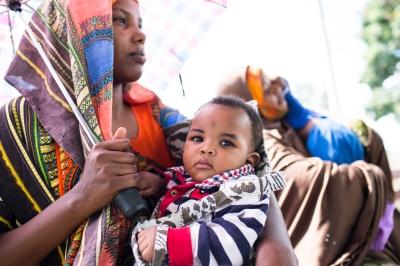
The following post was written in partnership with PATH’s Better Immunization Data (BID) Initiative.
The digital health landscape is rife with disconnected systems that make it challenging to aggregate information and improve the health of populations. After years of disjointed experiences, multiple organizations and governments have found that multi-platform, standardized, and connected information systems are critical to allow health care providers and decision makers access to timely and accurate information.
In this spirit, the International Training and Education Center for Health (I-TECH) joined forces with PATH’s BID Initiative to prevent disease by developing a platform to better trace vaccinations in low-resource settings. As part of its Global Health Security award, I-TECH is localizing the BID Initiative’s Zambia Electronic Immunisation Registry (ZEIR), an app powered by OpenSRP which is an open source mobile health platform, for use in Siaya County, Kenya.
I-TECH reached out to the BID Initiative last summer to hear more about BID’s lessons learned. The two teams began collaborating in earnest last December, leveraging the BID Initiative’s large scope in Zambia and Tanzania with I-TECH’s expertise in working with the OpenMRS platform.
Parallel Projects with Common Goals
In Kenya, I-TECH has been tasked with building an electronic platform to capture immunizations when they happen. The aim of the project—conducted in partnership with the Kenyan Ministry of Health, the CDC Global Health Protection Division, and the CDC Global Immunization Division—is to improve immunization coverage. This is done by tracking and monitoring who is due for which vaccine, starting with population-level coverage within a single county, thus decreasing the chance of outbreaks of vaccine-preventable diseases.
Similarly, the BID Initiative has been working with the Ministry of Health and nurses in Tanzania and Zambia to develop an electronic immunization registry, among other data use tools, to ensure data becomes more accessible and useful to health workers. This, in turn, can help with decision making to prevent vaccine stockouts and enable follow-up with patients who have not returned for needed vaccines. BID’s learnings provided an opportune starting point for I-TECH’s work.
...
The International Training & Education Center for Health (I-TECH) is a center within the University of Washington Department of Global Health, in partnership with the University of California, San Francisco.